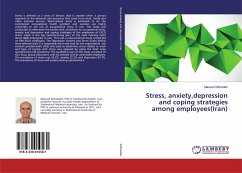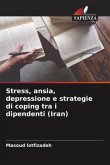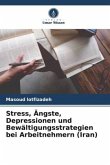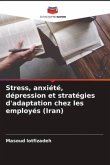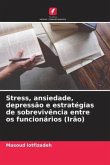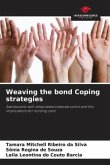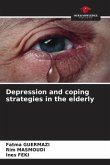Stress is defined as a state of tension that is created when a person responds to the demands and pressures that come from work, family and other external sources. Work-related stress is estimated to be the commonest occupational health problem and workers are highly vulnerable to the risk of occupational stress in Iran. This study was conducted to determine the factors that contribute to occupational stress, anxiety and depression and coping strategies of the employees of ESCO (Iran), which is the big manufacturing part of the steel industry (with about 6000 employees) in Iran. This was a cross-sectional study conducted on 664 ESCO employees. The Depression Anxiety and Stress Scales (DASS) were selected since it is reasonably short and easy for the respondents. Job content questionnaire (JCQ) was used to determine stress related to work and type of coping with stress was assessed by using the brief cope questionnaire (28 questions). The qualitative part of the study consisted oftwo focus group discussions with six stressed and six unstressed employees. The prevalence of stress was 54.2%, anxiety 52.2% and depression 67.7%. The prevalence of stress and anxiety among operational a
Bitte wählen Sie Ihr Anliegen aus.
Rechnungen
Retourenschein anfordern
Bestellstatus
Storno

